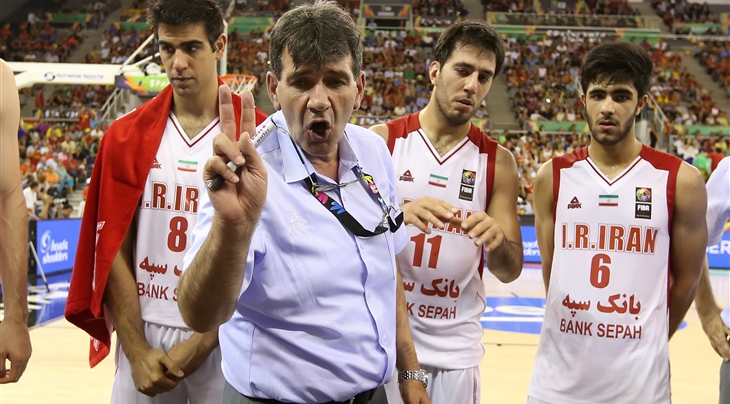
Coach-hunting season in FIBA Asia!
KUALA LUMPUR (Mageshwaran’s AsiaScope) – This is the season for coach-hunting in FIBA Asia. The 28th FIBA Asia Championship – and one automatic entry to the Rio 2016 Olympics – beckons the teams, but the question for me is if the National Federations look for coaches who will head their National team programs for the long-term instead of helming a collection of players for just one tournament. They should especially be keeping in mind the new, challenging and more arduous process of competition format that will come into force from 2017.
Before beginning to sound sermonizing let me cut to the chase on the factors, reasoning and rationales that should determine the choice of coach.
Budget
Well - budgetary resources, or the lack of it, is a factor that affect choice of a coach in most of the National Federations in the FIBA family.
"This is how much we have and can afford. Can we hire a good coach within this?" is the most-often discussed point in every board room when it comes to choosing a coach. Fair enough, but it's important to keep in mind that the coach of the National team is the most important position that you need in the team's program, if there is any. Therefore it's equally fair that the position is also the most expensive.
Play within your limitations, by all means. But don't be overly parsimonious. The expenditure on a good coach is the best investment for the National team's future.
Well settled
Right now there are only two teams that know their coaches for sure. Both are as good as certainties for the 28th FIBA Asia Championship.
Qatar have officially qualified for the event by winning the title at the 2014 GCC Championship last month. And India's qualification from the utterly lop-sided SABA sub-zone is nothing more than a formality.
Qatar will go with Vasileios Fragkias, but the Greek has more work to do than just handle Kuwait, Bahrain and Oman for opposition.
India will continue to have American Scott Flemming at the helm. The former Texas Legends has produced some pleasant surprises – although serendipitous – with the Indian team, but is severely hamstrung by a horrible paucity of serious competition-play for his players at the domestic level.
Coaches are well settled, but are the teams?
Almost sure
Iran and Jordan seem to have more or less finalized the men who will lead them next year.
Rajko Toroman was at the helm of affairs in putting together Iran's development program, and even leading them to the title at the 24th FIBA Asia Championship at Tokushima (Japan) in 2007. The Serbian is now entrusted with a similar task in Jordan. Can Jordan rise and provide the resources that Toroman needs?
And Memi Becirovic, the chief architect of Iran's growth as a FIBA Asia super power, is expected to remain at the helm for Team Melli. Things are not confirmed for the Slovenian's continuity, but they aren't ruled out either. Iran have lost only one game in FIBA Asia competition since Becirovic took over and it certainly won’t be any basketball reason if he doesn't continue.
I'd put Korea and Chinese Taipei too in this category, although we won't know the names of the coaches till their domestic seasons finish.
Not that I completely see the sense in their method, Korea and Taipei have followed the path of handing the National team to the coach of their domestic league's champion teams. This surely keeps the relationship between the NF and Leagues harmonious, but does it help a National team's program for the long haul? I'll talk about it some other time.
Let's continue this discussion next week with more focus on Lebanon, China and Philippines, three of the most popular basketball communities in FIBA Asia.
So long…
S Mageshwaran
FIBA Asia
FIBA's columnists write on a wide range of topics relating to basketball that are of interest to them. The opinions they express are their own and in no way reflect those of FIBA.
FIBA takes no responsibility and gives no guarantees, warranties or representations, implied or otherwise, for the content or accuracy of the content and opinion expressed in the above article.

















